You might think salt makes you bloated. It's actually something else. We hear all the…
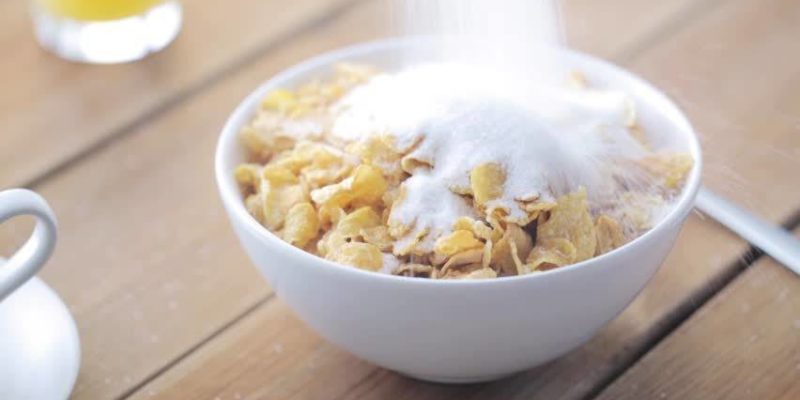
The Fats Making Us Sugar Addicts
Table of Contents
- This Article Covers
- Two kinds of sugar addiction:
- Sweet taste addiction
- Metabolic addiction
- How to tell the difference
- Of the two, metabolic sugar addiction must be fixed first
- It’s easy to fix: Stop eating seed oils
- Sweet Taste Addiction
- My Metabolic Sugar Addition
- If You Have Hypoglycemia Symptoms, You Have a Metabolic Sugar Addiction
- Seed oils got me hooked on sugar, and they’ve probably got you hooked, too
This Article Covers
Two kinds of sugar addiction:
-
Sweet taste addiction
-
Metabolic addiction
-
How to tell the difference
-
Of the two, metabolic sugar addiction must be fixed first
-
It’s easy to fix: Stop eating seed oils
Later this month I’ll be participating in the 5th annual I Quit Sugar Summit along with more than 20 other speakers who are helping folks understand the benefits of ending a sugar addiction.
This article is continued below...(scroll down)
Sugar is different from every other addictive substance because it can get you hooked two ways: hedonistically and metabolically. The hedonistic addiction is driven by sugar’s deliciously pleasurable taste, which gives you a sweet tooth and powerful cravings. But the more important of the two is something you’ve probably not heard about yet, and it comes from sugar’s ability to give you energy.
If you have a sweet tooth, you probably have both addictions. Even if you don’t have a sweet tooth, you can still be metabolically addicted to sugar as a source of energy and–because starchy foods like bread and pasta break down into sugar–this metabolic addiction may be the reason you crave high carbohydrate foods.
If you’re ready to extract your sweet tooth, lets get you up to speed on the difference between the two kinds of addiction and how fixing the metabolic addiction to sugar can’t happen while your diet is full of the kinds of fats that drive metabolic sugar addiction in the first place.
Sweet Taste Addiction
I have first-hand insight into how sugar can take over your life. My earliest memory is literally sugar-based, and I distinctly remember gleefully pouring as much sugar as I wanted over a bowl of cereal while my mother wasn’t looking. It turned out that I poured out a small mountain, which rose over the top of the bowl before I was caught red–white and granulated–handed.

Fast forward to my early medical career as a doctor stationed in rural North Dakota. The town was in the middle of nowhere and I had to drive 100 miles to Fargo in order to get my Starbucks Mocha Frappuccino fix. My life so revolved around sugar that the 200 mile round trip felt well worth it. And of course I was in denial about my addiction and annoyed at the suggestion I might have sugar issues. So when my husband pointed out that the 1/4 cup of sugar dumped into my daily coffee treat in the form of home-made caramel sauce might be a problem, I thought he was being ridiculous.
I wrote about this in Deep Nutrition in a somewhat self-congratulatory manner, as if getting off sugar can be simple for anyone who has truly made up their mind to do it. But it wasn’t until after publishing the book that I realized sugar addiction goes way beyond willpower and the only reason I could get off sugar was that I’d fixed my metabolism by first getting off the oils that drove me to sugar in the first place.
Fast forward again to today. Sugar, once recommended as a formula additive to help children adapt to the bottle, has been outed as a powerfully addicting substance, more powerful than even cocaine. While there is still some pushback from commerce-conflicted quarters about ‘natural’ sugar somehow being healthy and only ‘added sugar’ being a problem, most folks talking about sugar recognize that the reason it’s addicting is it’s sweet taste, not the fact that it came from a factory.
The reason sweetness is addicting has to do with how it impacts the pleasure centers of your brain. Bursts of sweetness in our food can cause the release of huge amounts of dopamine and opioids, which make you want to experience the same sensation over and over. As with addictive drugs, you get to a point where you need more sweetness to create the same pleasurable effect.
Switching to Low Calorie Sugars Won’t Curb Your Sweet Tooth
Sweet taste has powerful impact on our psychology, mediated through the appetite regulation center of our brain. This makes any sweet taste addiction a problem, whether your sweetness comes from high fructose corn sugar, bananas or the latest ‘healthy’ sugar fad. Today’s current sugar fad involves the sugar alcohols like sorbitol, xylitol and erythritol (erythritol is the main ingredient in Swerve).
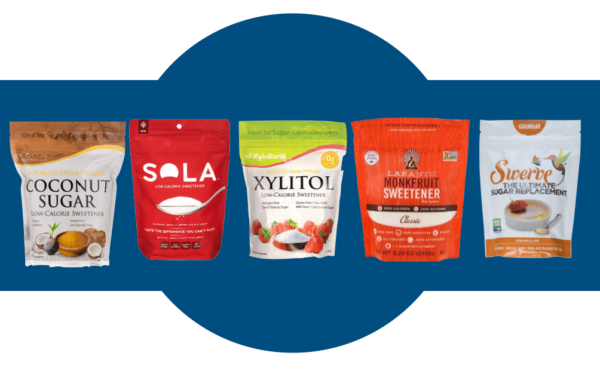
Unless you are that person who enjoys sugar but never thinks about it unless its in front of you, then low calorie or no calorie sweeteners are every bit as damaging to your long term health as the full-calorie original. It has to do with priorities.
Those of us prone to developing a sweet tooth can be so ruled by our craving for sweetness that we orient our lives around getting a hit. This is not healthy–even if you are normal weight. I say this because if sweetness is the main thing you look forward to, you are probably going to enjoy desserts and snacks more than healthy foods. Until you can look forward to savory, salty and umami every bit as much as sweet, you’re likely to either overeat to get those treats and thus gain weight or eat sweets like fruit instead of more nutritious foods, and thus undernourish your body.
So how do you go from being a person who craves sweetness above all other flavors to someone with a more balanced palate? Can you reprioritize your palate for flavors other than sweet? Is it even possible to extract a sweet tooth?
I never thought I’d end my relationship with sugar. I used to hear people say how sweet things like carrots were and I thought they were absolutely bonkers because to me carrots tasted like cardboard. But once I fixed my metabolic health, the only difficulty I had with sugar was in deciding that yes, I was going to cut down. Once the decision was made, my healthier metabolism did the rest of the work.
That’s why I can tell you from first hand experience is all the willpower in the world isn’t going to free you from your sweet taste addiction while your metabolism is abnormally dependent on sugar. As powerful as the hedonistic, reward-center driven addictions can be, a metabolic addiction is even more powerful. Fortunately, it’s also much easier to fix.
My Metabolic Sugar Addition
When I first started my medical practice in Hawaii, I thought I was in fantastic health. I was able to bike or run or swim for hours at a time and I convinced myself that my sugar habit was completely handled by burning off all those calories. My day started with a bowl of raisin bran cereal and skim milk around 7 and starting around 11 I’d get cold hands, tremors and feel a little anxious. I figured I just had a ‘fast metabolism’ and had burned off all the calories from my breakfast.
The truth was very different.
I didn’t know it at the time but my blood tests were shockingly bad. I had a fasting blood sugar of 113, and my HDL was embarrassingly low at 29. The symptoms I got when hungry, the blood tests, and my obsession with chocolate were all warning signs of a damaged metabolism and they were all coming from the same cause: a lifetime of high-PUFA seed oil consumption. (PUFA stands for PolyUnsaturated Fatty Acid, I’ll go into more detail below)
As I wrote in Deep Nutrition, the only reason I was able to get off sugar is that several months prior to making the decision I’d made another, much easier dietary change–to stop eating the high-PUFA seed oils and start seeking out traditional, naturally high fat foods.
Instead of cereal I broke my overnight fast by drinking cream, milk and coffee. For lunch I had a slice of sprouted grain bread slathered in butter and topped with flying fish eggs (easy to find in Hawaii) instead of granola bars or muffins. We stopped our habit of frozen Marie Calendar dinners, quit buying our favorite store bought Italian salad dressing and started cooking dinner ourselves and dressing our salads simply with salt, olive oil, balsamic vinegar and fresh garlic.
So by the time I made up my mind that I was going to cut out sugar, my metabolism was healthy enough to fuel with my body fat instead. Because I poured so much cream in my coffee, I had energy to burn all morning. Eventually I realized I didn’t even need to bother with lunch. Meanwhile, the anxiety, irritability and late afternoon fatigue that I’d come to accept as part of how I was wired had completely melted away. It turns out those bad moods and tendency towards laziness were just manifestations of a sugar dependent metabolism.
In other words, without really knowing I was doing it, I’d fixed my metabolic addiction to sugar. That’s how easily it can be done.
So how do you know if you, too, have a metabolic addiction to sugar?
If You Have Hypoglycemia Symptoms, You Have a Metabolic Sugar Addiction
If you feel bad when you’re hungry, that’s a sign you’ve probably got a metabolic sugar addiction. Normal hunger is easy to ignore when you stop thinking about your stomach. But metabolically driven hunger keeps coming at you until you get something to eat.
People with metabolically driven hunger are often misdiagnosed as having a condition called hypoglycemia, meaning low (hypo) blood sugar (glycemia). Doctors will usually diagnose this condition without ever checking your blood sugar during an episode. If they would check your sugar, they’d learn something really important: it’s not actually low. It’s usually well within the normal fasting range or, more commonly, its above normal.
Hypoglycemia symptoms can occur when an area of your brain needs more energy than your bloodstream is delivering. Between meals, if your metabolism is healthy, your body is supposed to get most of its energy from your body fat. But when your body fat is unable to supply the cells of your body with energy, they turn to sugar instead. This is what I mean by a metabolic sugar addiction.
If an area of your brain does not get enough energy it won’t function properly, and that usually causes some kind of symptom. Your body also goes into panic mode, releasing adrenaline that can cause more symptoms. The most common are listed here:
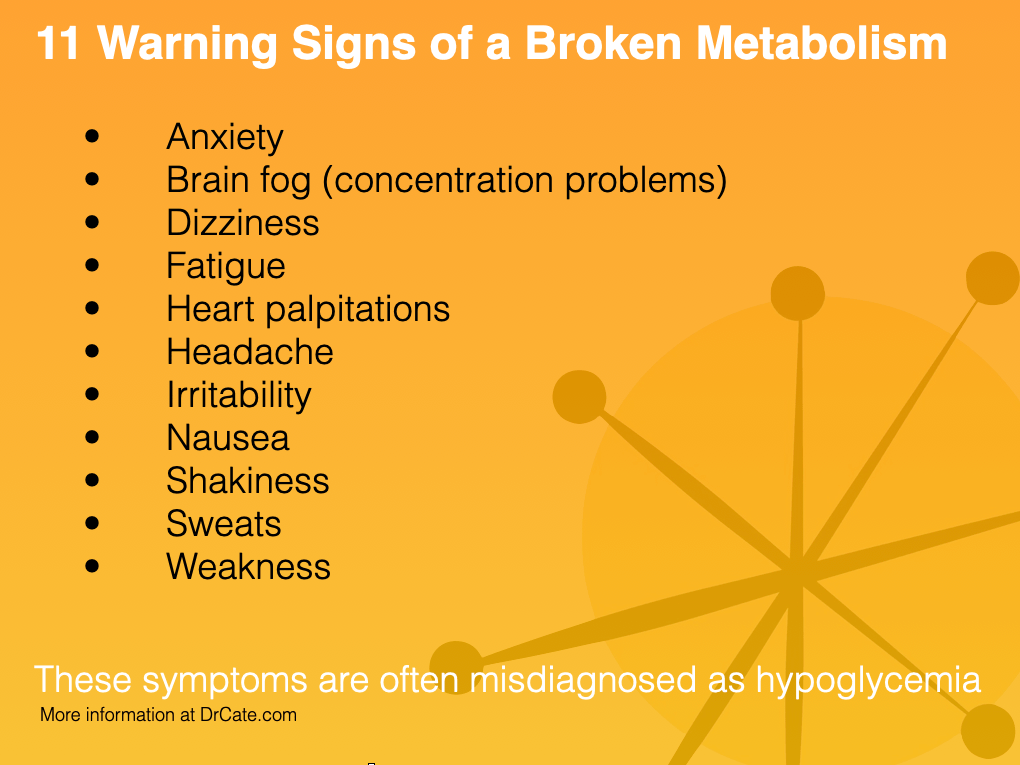
If you feel any of symptoms when you get hungry, that is not normal hunger; it’s an energy crisis. Low energy is an emergency for the cells of your body because cells don’t function for long without energy. When your cells don’t function, you don’t function. You might get irritable or be unable to concentrate on important tasks or your heart might start pounding out of your chest or you might even get a panic attack. People with migraines often notice their attack started after going too long without eating. Many of my patients have taken to carrying candy or other snacks to try to control these sorts of symptoms.
All of these problems and the usual attempts to solve them are driving a deeper dependence on sugar. Instead of snacking, a better way of resolving these symptoms is fixing the metabolic damage that leads to low energy supply.
This is not something that willpower alone can fix.
If you simply stop eating sugar without doing anything to make sure your cells get an alternative fuel, you’re not likely to have success ending your relationship with sugar. The only way to fix metabolic sugar addictions is to provide your cells with fuel other than sugar. When I stopped my morning bowl of sweet cereal and started drinking so much cream, the ferocious sweet tooth I’d had all my life couldn’t hang on.
Seed oils got me hooked on sugar, and they’ve probably got you hooked, too
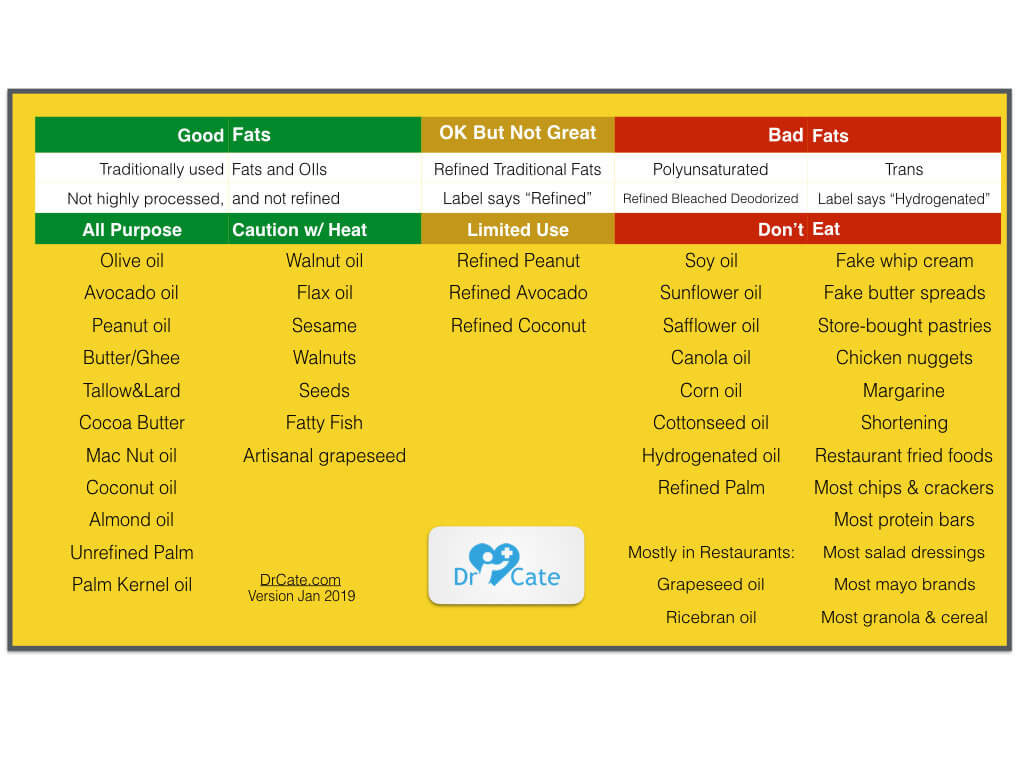
As you’ll hear me explain on the I Quit Sugar Summit, we eat 1000x more soy oil today than we did during the last century, and our body fat reflects that historically high consumption of plant-derived fats. Plant-derived fats are good for the plant they’re derived from, but they are in no way shape or form designed to fuel people. Some plant fats do work well as fuel for humans, but not the kinds that we can grow in most of the USA. What we grow, and what we now eat, are seed oils derived mainly from soy and canola.
The kinds of fatty acids in these seed oils are the problem. Seed oils are rich in the least stable kind of fatty acids on the planet, the PUFAs (PUFA=PolyUnsaturated Fatty Acid). These unstable oils are essential to allowing the seed to germinate in cold climates. They are also essential to allowing cold-water mammals like seal to stay well insulated against the frigid arctic water and ice. They are even essential to human health, composing half of all the fatty acids in our brain. So it’s not that these PUFAs are inherently toxic. The problem is that we simply eat way too many of them.
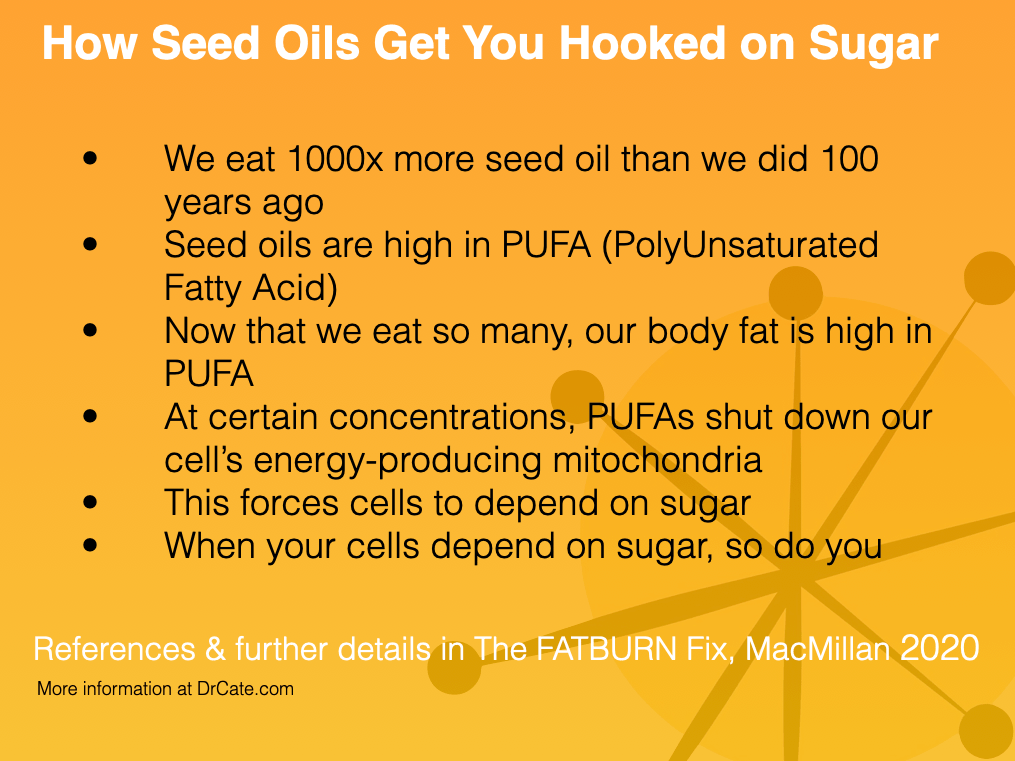
Now that we eat so many seed oils, the percentage of PUFA in our body fat is historically high. At a certain concentration, these fatty acids shut down the ability of our mitochondria to make energy. To survive, they’re forced to slurp more sugar from your bloodstream, which drops your blood sugar. When your blood sugar drops, you get hypoglycemia symptoms and powerful sugar cravings.
To live without my favorite high-seed oil foods, I had to overcome a fear of foods like butter, eggs, cheese and cream that had been programmed into me since childhood and reinforced during medical school. Insights from a book by a Family Doctor in Denmark called The Cholesterol Myth helped me shake free from pre-programed fear. His book introduced me to the unsavory origins of the idea that saturated fat is unhealthy, and my own investigative efforts uncovered further evidence of wildly unethical ‘science’ originating mostly from a self-centered man who I call the father of processed foods. (To learn more about this watch Episode One of Naomi Whittle’s docuseries The Skinny on Fat, by clicking here.)
Nature designed your cells to fuel with fat–animal fat
In my 2020 book, The FATBURN Fix, I explain more about how seed oils induce not just hypoglycemia but also insulin resistance, prediabetes and then diabetes. I make the case that by restoring your body fat to a normal composition you will not only set yourself up once and for all for a healthy relationship with food and lasting weight loss, you’ll be able to reverse any and all metabolic diseases you may be dealing with right now. As a doctor, I can tell you that most of what brings people to my office, and most of the prescriptions used, revolve around metabolic disease.
And you don’t have to take my word for it. More and more doctors are waking up to the idea that the most important role we can play in our patients lives is not ‘managing’ disease, but reversing it. I’ve had the honor of being invited to join many of them in the 5th Annual Quit Kick Sugar Summit 2020!
It runs from April 27th through May 3rd, 2020. Check the speaker’s schedule to see which day I’m on. The summit is 100% virtual and 100% free. There will be over 45 speakers from around the world—doctors, researchers, coaches, authors, influencers and success stories. And here’s just a small sampling of the topics they speak about: Natural, steady weight loss with… Improve your mood quickly, heal your dopamine receptors Many people cut back or totally eliminate medications of all kinds Make more satisfying food choices No crazy exercise Increased energy – finally wake up refreshed Better concentration Learn to care for yourself in a deep way Take back control of your health No need to leave your home—just log in and watch for free for 5 days straight. CLICK HERE
Did you participate in the Summit? Please tell us below!
Please note: Please do not share personal medical information in a comment on our posts. It will be deleted due to HIPAA regulations.
This Post Has 10 Comments
Note: Please do not share personal information with a medical question in our comment section. Comments containing this content will be deleted due to HIPAA regulations.

















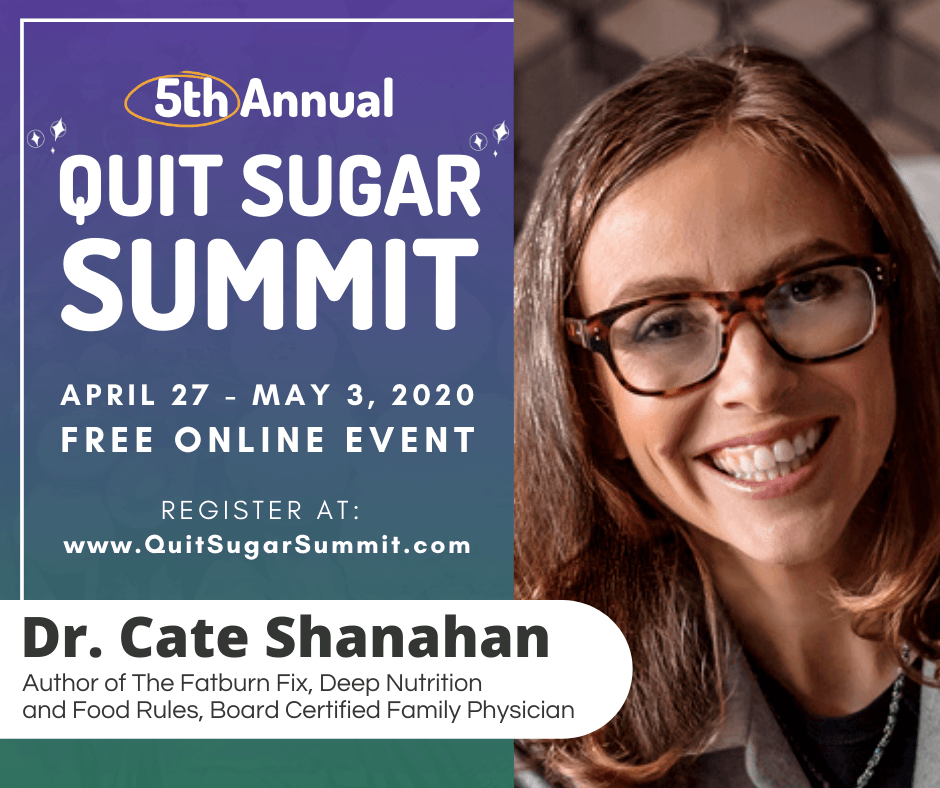
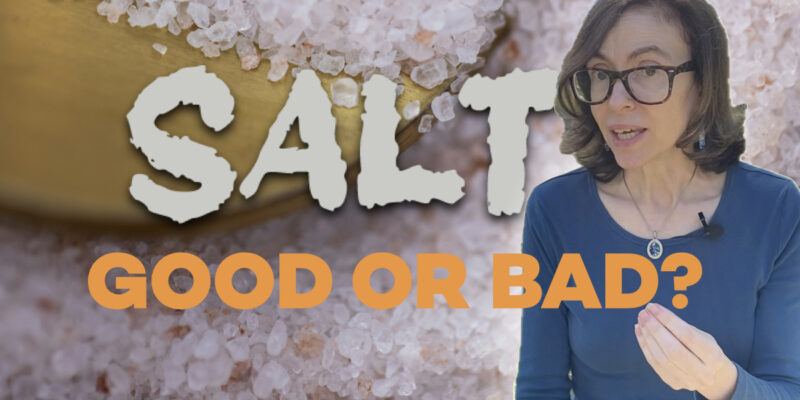
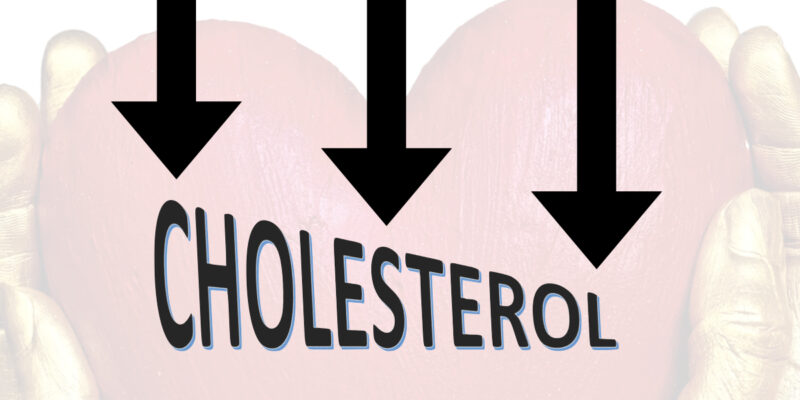
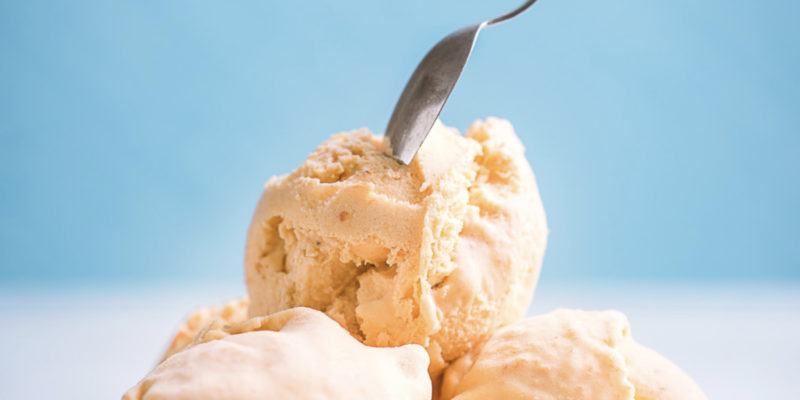
I have this low carb paleo bread with a low glycemic index and load. chia seed coconut and there are some sunflower seeds and pumpkin seeds in it. this got me thinking, sometimes a few seeds are sprinkled on salads, and i have found a sprouted bun with sunflower seeds on the top. if the oils are bad, what about the natural seed? I have searched for a while now but not found any specifics. thank you!
Hi Dr. Cate! I believe we are on the same, huge mission here. I would love to connect you privately and help you to connect with one of the top brains on this subject. Please feel free to contact me via http://kytosaho.com/contact/ and see how we could improve millions of Americans’ lives together!
Check out the PUFA Project. Sorry for the delay, my widget was hiding half of the comments, so weird. https://drcate.com/pufa-pro…
Dr. Cate…I’m pretty good re: PUFAs but have more room to eliminate them. If I stop consuming today, how long will it take for my body to rid itself of PUFAs? Thank you so much!
I would love to see studies that show vegetable oils cause inflammation. Is there somewhere on your site where I can see these studies or can you point me in the right direction. love your books! Thank you!
It can take months to years to improve depending on age/metabolic health. But it will imrpove.
If you are transitioning away from a lifelong high PUFA seed oil diet to the unrefined good fats you suggest, how long should it take to repair your metabolism and raise your HDL cholesterol? Assuming you are going mostly cold turkey on the bad oils and you notice your sugar addiction fading. Thank you so much for this enlightening information.
Hypoglycemia is a sign of poor metabolism, it’s just that doctors aren’t schooled up on it so can’t help you fix the underlying problem. More info in the FatBurn Fix.
The symptoms are pretty identical between hypoglycemia and poor metabolism: as someone who’s experienced these symptoms throughout my life, how would you know exactly which one you have?
All this is truly fascinating! Thank you.
I just discovered Dr. Shanahan during a TV interview. I find this discussion really interesting, but what do you do if you’re anaphylactic to dairy and eggs? I can eat meat but severely allergic to dairy/eggs. I can’t put that full fat cream in my coffee, or eat eggs for energy. I am forced to eat alternative products. Any suggestions? Thank you!